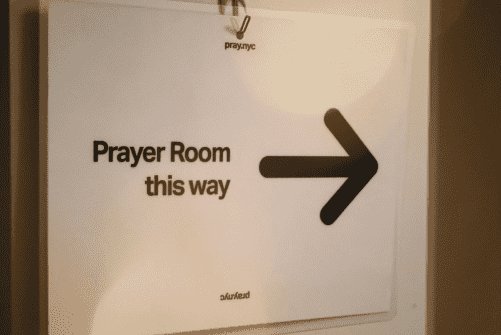
Blog
- Employee wellbeing
Home
Resources
Employer advice

Charlie Herrera Vacaflor, Employment Law & HR Content Senior Consultant
(Last updated )

Charlie Herrera Vacaflor, Employment Law & HR Content Senior Consultant
(Last updated )
In Canada's diverse landscape, fostering a workplace that respects and accommodates employees' religious practices is both a legal necessity and a sound business strategy. Supporting employees in balancing their faith and work lives creates a positive, inclusive, and productive environment. But how do you achieve this balance effectively?
Religious accommodation means making adjustments to the work environment to allow employees to practice their sincerely held religious beliefs. This goes beyond simply tolerating differences; it requires actively creating space for religious observance. Human rights laws across Canada protect individuals from discrimination based on religion, covering a wide range of beliefs and practices, not just those of organized religions.
"Religion" encompasses practices, beliefs, and observances connected to a particular faith. This can include:
It's important to note that while personal, moral, ethical, or political views are not necessarily “religion” in themselves, freedom from discrimination based on sincerely held beliefs connected to religion is protected.
Canadian employers have a legal duty to accommodate employees' religious beliefs and practices. This duty is enshrined in human rights legislation across all provinces and territories (except Quebec, which has its own specific laws). The obligation is to accommodate up to the point of “undue hardship.”
Accommodation can take many forms, and it's crucial to remember that there's no one-size-fits-all solution. Common examples include:
The duty to accommodate is not unlimited. Employers are not required to accommodate if doing so would cause “undue hardship.” This is a high legal standard, and the burden of proof rests on the employer. Key factors considered in determining undue hardship include:
Employers will be required to provide objective, real, and direct evidence to support their claim. Where applicable, they may be required to provide quantifiable evidence.
Religious discrimination can manifest in various ways, including:
Unreasonably denying a religious accommodation request can be extremely costly for Canadian employers, extending far beyond legal fees. Human rights tribunals can award significant damages for injury to dignity, feelings, and self-respect, as well as lost wages and expenses. These financial penalties are in addition to the reputational damage and decreased employee morale that can result from a discrimination finding.
Beyond legal compliance, accommodating religious practices offers significant benefits:
Navigating religious accommodation can be complex. Peninsula Canada’s HR advice and documentation experts can provide up-to-date documentation and guidance on:
Peninsula’s services allow you to receive quality advice on any employment issues you may have. To learn more about how our services can protect your business, call a Peninsula expert today at (1) 833 247-3652.
Home
Resources
Employer advice
